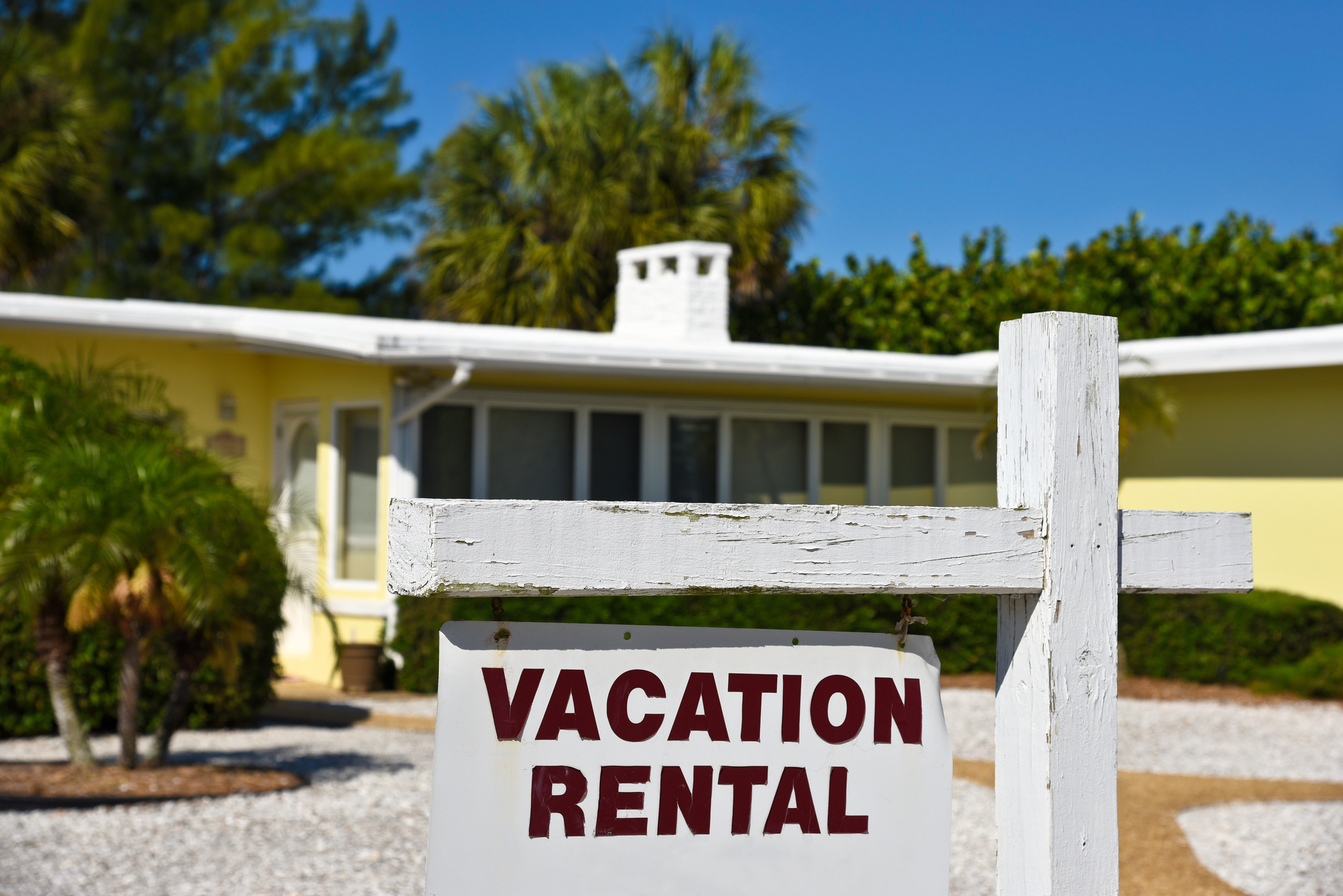The idea of owning U.S. real estate is enticing to many Canadians. Whether it’s a vacation home in Florida, an investment property in Arizona, or a retirement spot in California, the U.S. real estate market offers numerous opportunities. However, the process of purchasing property across the border is often surrounded by myths and misconceptions that can deter potential buyers.
Myth 1: You Need a U.S. Credit History to Buy Property
Reality: One of the most common misconceptions is that you need a U.S. credit history to secure financing for a property purchase in the United States. While it’s true that many U.S. lenders require a credit history in their country, this is not always the case.
RBC’s cross-border mortgage services8 allow Canadians to qualify for a U.S. mortgage using their Canadian credit history. RBC U.S., a subsidiary of RBC Royal Bank of Canada, understands the unique needs of cross-border buyers and offers financing solutions that eliminate the need for a U.S. credit score. This service allows Canadian investors to take advantage of competitive mortgage rates and terms, making it easier to enter the U.S. real estate market without the hassle of building a U.S. credit history.
Myth 2: Getting a U.S. Mortgage Is Difficult
Reality: Beyond worrying about needing a U.S. credit history, many Canadians also worry that getting a mortgage will be complicated, and that they will need to travel to the U.S. just to apply. However, the mortgage process doesn’t need to be complex. RBC U.S. cross-border mortgage services provide Canadian investors with the support needed to easily navigate the mortgage and buying process. RBC even allows mail-away mortgage application options, so you don’t need to go to the U.S. to complete your mortgage.
Myth 3: The Buying Process is Similar to Canada
Reality: While there are some similarities, the process of buying real estate in the U.S. differs significantly from Canada in several ways. Even the time to process mortgages is different. The mortgage processing time in Canada is typically five to ten days, while in the U.S. it takes 40 to 45 days.
One of the biggest differences is the role of escrow in U.S. transactions. In Canada, the process typically involves lawyers handling the transfer of funds and property. In the U.S., an escrow agent – a neutral third party – holds the funds during the transaction and ensures that all conditions of the sale are met before releasing the money to the seller.
In Canada, a 20% down payment is required for conventional mortgages without insurance, while a minimum of 5% is needed with mortgage insurance. In the U.S., a 20% down payment is typical for primary residences, and 25% is common for investment properties.
Canadian closing costs are around 2.5% of the purchase price, often covering land transfer tax and legal fees. U.S. closing costs vary, and banks may charge additional fees, sometimes totalling 1% of the purchase price. Notably, RBC U.S., however, does not charge these fees on U.S. mortgages42, offering potential savings.
Understanding these differences is crucial for a smooth buying experience. RBC’s U.S. HomePlus™ Advantage program guides buyers through the U.S. home-buying process, connecting you with knowledgeable industry experts. They also offer a free U.S. home-buying e-guide that covers these unique aspects.
Myth 4: Foreign Buyers Face Higher Property Taxes
Reality: Property taxes in the U.S. are based on the property’s assessed value, and vary by state, county, and even municipality. Contrary to popular belief, foreign buyers, including Canadians, do not automatically face higher property taxes than U.S. citizens. The property tax rate is the same for all property owners, regardless of nationality. Another positive note is that the Canada-U.S. Tax Treaty lets you claim a foreign tax credit on your Canadian tax return for taxes paid to the U.S.
You do need to be aware of all tax implications as the overall tax burden can vary depending on specific factors such as location, property use, and local tax assessments.26 Property tax rates can differ widely depending on where you buy. For example, property taxes in Texas are known to be higher compared to those in Florida. Additionally, some states offer tax exemptions or reductions for primary residences, which may not apply to foreign buyers or those purchasing vacation homes. Be sure to thoroughly research the area in which you are considering buying.
However, apart from property taxes, Canadian buyers should be aware of potential lender fees that impact foreign buyers. Some U.S. lenders charge a “foreign national premium,” which typically ranges from 1.5% to 2% of the loan amount. This fee is specifically charged to foreign buyers who secure a U.S. mortgage. The good news is that not all lenders impose this fee. For instance, RBC U.S. not only avoids the foreign national premium, but they also do not charge standard lender fees such as underwriting, processing, or origination fees.42 This can lead to significant savings for Canadian buyers and further simplifies the process of acquiring U.S. real estate.
Consulting with a cross-border tax expert is recommended, for advice tailored to your specific circumstances.

Myth 5: Renting Out Your U.S. Property is Complicated and Risky
Reality: While renting out a U.S. property does involve certain responsibilities, many Canadian investors successfully rent out their U.S. properties, enjoying a steady income stream, especially in popular tourist destinations.
The key to successful property management lies in understanding the local rental market and regulations. For example, short-term vacation rentals may be subject to specific zoning laws or restrictions, particularly in cities like Miami or Los Angeles. Working with a local property management company reduces the burden greatly, ensures all aspects are compliant with legislation, and provides peace of mind. Property managers can handle everything from tenant screening to maintenance and rent collection, reducing risks and simplifying the rental process.
Getting Support
The U.S. real estate market offers exciting opportunities for Canadian investors, but it’s important to separate myths from realities to make informed decisions. With the right knowledge, resources, and support, such as RBC’s cross-border mortgage services, Canadians can successfully buy U.S. property.
RBC U.S. offers flexible mortgage options and secure financing with favourable terms, with the ability to finance properties across all 50 states.25 When you choose to get your U.S. mortgage with RBC’s cross-border mortgages, you can avoid the foreign national premium that other U.S. lenders may charge. You are also able to use your Canadian credit history to qualify for a mortgage with RBC, too, so getting a U.S. mortgage is easier. Finally, RBC’s pre-approval process allows you to move quickly when the right property becomes available.
Furthermore, RBC’s HomePlus™ Advantage program assists Canadian buyers with a comprehensive suite of tools and resources, including access to U.S. real estate agents who specialize in helping Canadians find properties that meet their investment goals, as well as tax and legal advisors. You can even get a free U.S. home-buying e-guide.








